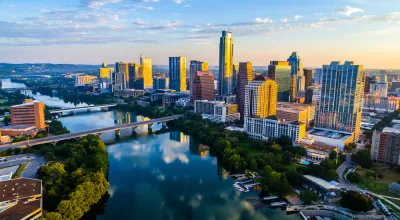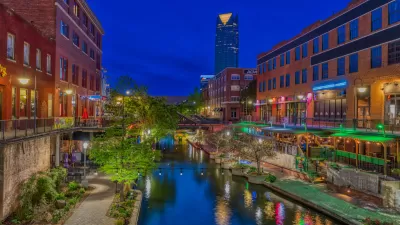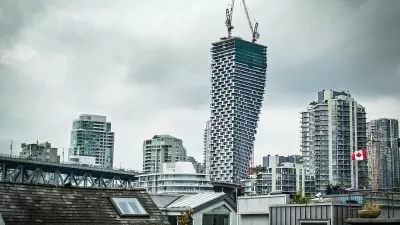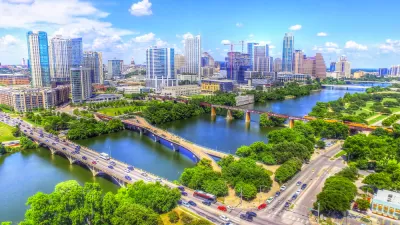Multiple proposed skyscrapers are changing the shape of once low-slung downtown Austin, signaling the growth of the city as a technology and manufacturing hub.

In an article for Bloomberg CityLab, Kriston Capps describes the ‘supertall’ skyscraper projects that are poised to transform the “once-modest skyline” of Austin, Texas, including an 80-floor tower that would become the tallest in Texas upon completion.
As Capps explains, a ‘supertall’ is defined as any building over 300 meters tall. “The skyscrapers will stand as a string of exclamation points punctuating a decade-long-plus ‘Texas Miracle’ of economic growth.” While other Texas cities have also seen robust growth, Austin, once known as ‘Silicon Hills’ in the 1990s, is unique in that “The city’s pivot toward high-tech manufacturing — led by companies like Tesla Inc. and Samsung Electronics Co. and fueled by President Joe Biden’s embrace of industrial policy as well as generous state and local incentives — has triggered an avalanche of investment.”
Capps warns that the supertall boom could be less promising than it seems. “Real estate is a lagging indicator, and skyscrapers often arrive after the boom is over, looming half-empty as monuments to a bust.” But with companies like Samsung planning to build massive semiconductor manufacturing plants in Austin, it appears that the city’s growth spurt may be more than a flash in the pan.
FULL STORY: The Supertalls Are Coming to Austin

Manufactured Crisis: Losing the Nation’s Largest Source of Unsubsidized Affordable Housing
Manufactured housing communities have long been an affordable housing option for millions of people living in the U.S., but that affordability is disappearing rapidly. How did we get here?

Americans May Be Stuck — But Why?
Americans are moving a lot less than they once did, and that is a problem. While Yoni Applebaum, in his highly-publicized article Stuck, gets the reasons badly wrong, it's still important to ask: why are we moving so much less than before?

Research Shows More Roads = More Driving
A national study shows, once again, that increasing road supply induces additional vehicle travel, particularly over the long run.

Pittsburgh Rolls Out Electric School Buses
Pittsburgh Public Schools has launched its first electric school buses, with plans to fully electrify its fleet over the next 14 months, aiming to create a cleaner, more sustainable transportation system supported by new charging infrastructure.

Concrete to Community: A Schoolyard Makeover in West Philly
With guidance from the Trust for Public Land, third graders at Overbrook Elementary are leading the redesign of their asphalt schoolyard into a vibrant green space, learning valuable skills and creating lasting community impact in the process.

Which US Rail Agencies Are Buying Zero-Emissions Trains?
U.S. rail agencies are slowly making the shift to zero-emissions trains, which can travel longer distances without refueling and reduce air pollution.
Urban Design for Planners 1: Software Tools
This six-course series explores essential urban design concepts using open source software and equips planners with the tools they need to participate fully in the urban design process.
Planning for Universal Design
Learn the tools for implementing Universal Design in planning regulations.
City of Moreno Valley
Institute for Housing and Urban Development Studies (IHS)
City of Grandview
Harvard GSD Executive Education
NYU Wagner Graduate School of Public Service
City of Cambridge, Maryland
Newport County Development Council: Connect Greater Newport





























